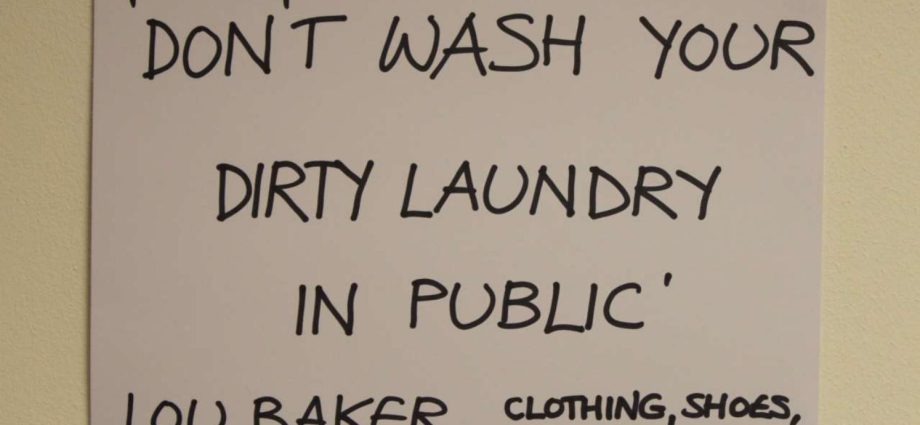We live in a time of revision of the rules and prohibitions. Many attitudes that were instilled in us by parents and society: “I” is the last letter of the alphabet, “Shut up — you’ll pass for a smart one,” “Modesty decorates” — are confidently rejected. But what about the prohibition to take out «dirty linen in public»? Psychologist Ekaterina Mikhailova is sure: for starters, it’s worth figuring out what is behind our desire to tell the whole world about what is happening in our family.
At all times, there were hunters to break the ban — not to make dirty linen, that is, not to talk about troubles or quarrels relating to a narrow circle of «ours», whether it be a family, a professional community or a corporation. What used to fall out into the communal kitchen is now being put on public display on the Internet.
One day, a friend of mine, whose long marriage was on the verge of collapse, dropped: “Yesterday I discussed with my future ex-husband how to publicize my divorce.” Despite a thousand mutual claims, this couple wanted to protect their private space and «not wash dirty linen in public.» Why? Because they had to continue to live in the same professional and friendly environment. Agree, it looks like the life of our ancestors, who had nowhere to go from their village — like it or not, but you will think about the consequences of the pleasure of «saying everything as it is.»
Calling viewers or readers to witness is most often a way to disgrace (devalue) someone from a “narrow circle”. Many do it consciously. The star wife, who talks about her husband’s wild habits in an interview, knows: this is a sentence to marriage or a way to draw attention to herself — family loyalty is violated with a long-term aim. Children who open up on social networks about intolerable parents also “know what they are doing” in their own way: the opinion of the audience is more important than the reaction of the parents themselves, whose grades are no longer important.
Having caught yourself wanting to complain about “ours”, you should at least think about what personal need is hidden behind it
In a sense, “taking rubbish out of the hut” means that the “hut” itself is not so significant, you can build a new one … and believe for the time being that there will be no rubbish in the new one!
But here a tricky question arises. To talk badly about a life partner or “unsuccessful” children for someone means admitting their defeat: if he (she, they) is so bad, then what are you like? You chose this companion, you gave birth to these children!
«Defending one’s reputation» turns out to be a self-defense motive, and some hold on to it so much that they harm themselves or those close to them. A child with developmental disabilities is not shown to a specialist, because in our family there can be nothing “such”!
A woman who is subjected to domestic violence, suspiciously often «falls off the ladder.» And the situation is getting worse: the child is lagging behind in development, the husband’s aggression is growing. Shame and loneliness are hidden behind family loyalty, seasoned with fear of condemnation: after all, someone will definitely speak out in the spirit of “it’s her own fault” or “I should have thought before.”
And here is the time to remember the literal meaning of the ban on taking out garbage: it was supposed to be revenged not on the doorstep, but from the door — and burned in the stove. It was believed that an unkind person could use discarded items to cause magical harm. How are direct and figurative meaning related?
Burning rubbish in the stove (“heart” of the house) is a metaphor for overcoming troubles and conflicts independently and jointly. They are not hushed up (garbage is not swept under the carpet or into a dark corner), but they are not brought to the judgment of outsiders either.
Catching yourself on the desire to complain about «their» or, on the contrary, keep silent about the sore, you should at least think about what personal need is hidden behind this. It happens that the family situation is difficult and support is really needed. In these cases, the degree of publicity is regulated: for example, privacy settings in social networks.
Prepared by Alla Anufrieva.










